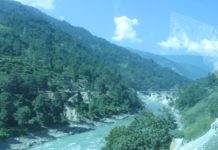In the labyrinth of educational evaluation, competitive exams stand as the gatekeepers, determining the passage into higher echelons of academia and professional realms. They serve not only as a measure of knowledge and aptitude but also as a crucible for the sharpening of skills, the cultivation of resilience, and the manifestation of individual potential. The discourse surrounding the importance of competitive exams transcends mere academic assessment; it delves into the very fabric of meritocracy, socio-economic mobility, and the pursuit of excellence.
Competitive examinations like those of the Union Public Service Commission (UPSC) serve as indispensable tools for identifying and nurturing talent for crucial roles in public administration. This essay elucidates the pressing need for such exams in contemporary society.
To start with, What is UPSC? The UPSC, or Union Public Service Commission, Civil Services Examinations refer to the exams that recruit the golden minds of India. These exams are a gateway through which one can be recruited for IAS), (Indian Administrative Services), IPS (Indian Police Service), Indian Foreign Service (IFS), etc. It evaluates candidates on a diverse range of subjects, testing their analytical, logical, and decision-making abilities.
One of the fundamental aspects of UPSC is its commitment to meritocracy and equal opportunity. Regardless of socio-economic background or regional disparities, UPSC provides a level playing field for aspirants from all walks of life. This ethos fosters inclusivity and diversity within the civil services, ensuring that the administrative machinery reflects the pluralistic fabric of the nation.
Competitive exams like the UPSC are instrumental in identifying and selecting individuals with the requisite knowledge, skills, and aptitude to assume leadership positions in various sectors of public administration. By rigorously testing candidates across a spectrum of subjects and competencies, these exams help cultivate a pool of competent leaders who can navigate the complexities of governance and drive positive change in society.
UPSC or CSE examinations are conducted across India at three levels. The first level is the Preliminary Examination. This stage comprises two objective-type papers: General Studies Paper-I and General Studies Paper-II (popularly known as the CSAT, or Civil Services Aptitude Test). The marks obtained in the Preliminary Examination are only for qualifying for the Main Examination. The second level of examinations is known as the main examination.
It consists of a written examination comprising nine papers of conventional essay type. Out of these, seven papers are considered for merit ranking, while two papers are qualifying in nature. Thirdly, a personality test (interview), in which Candidates who qualify the Main Examination are called for a personality test, which evaluates their personality, communication skills, and suitability for the civil services. Once a candidate passes all three levels of examination, she is eligible to become either an IAS, IPS, IFS or IRS.
As one can already sense, UPSC or CSE exams have a vast syllabus. Starting from current events of national and international importance, History of India and the Indian National Movement, Indian and World Geography, Indian politics and Governance, Economic and Social Development, Environmental Ecology, Biodiversity, and Climate Change, general science to Comprehension, Interpersonal skills including communication skills, Logical reasoning and analytical ability, Decision-making and problem-solving, General mental ability and Basic numeracy.
For instance, in recent years, the number of candidates applying for the Civil Services Examination alone has been in the range of several hundred thousand to over a million. The actual number fluctuates from year to year based on factors such as changes in eligibility criteria, socio-economic conditions, and aspirational trends. Similarly, the Engineering Services Examination and the Combined Defense Services Examination also attract a substantial number of applicants.
Every year, approximately 10,00,000 students appear for the exam, but the overall UPSC pass percentage of candidates is just 0.2%. Overall, the UPSC examinations continue to draw significant interest and participation from aspiring candidates seeking to pursue careers in various sectors of public administration, engineering, and defense services. But to look upon the numbers of the candidates actually getting selected is a few hundreds only.
Well, what information we can drive out of the data is that UPSC is indeed one of the toughest examinations in India. While the UPSC may indeed be considered one of the toughest examinations, it is also seen as a test of character, intellect, and dedication. Success in UPSC examinations not only opens doors to prestigious career opportunities but also signifies a commitment to serving the nation with integrity and excellence.
A candidate with a golden mind, charismatic personality, radiant consistency, and determination can only pass this examination. This examination is not only a test of knowledge, skill, virtue and ethics but also of resilience, determination, personality, consistency and overall problem-solving.
Indeed, it’s like a long journey whose end keeps some happiness and patriotism within. Remember that the journey towards UPSC is not just about passing an exam, but about serving the nation. Keep in mind the impact one can make by becoming a civil servant and contributing to the welfare of society.
In conclusion, one should remember the quote, “Whatever is your passion, keep doing it. Don’t waste time chasing after success or comparing yourself to other people. Remember, Each and Every flower blooms at a different pace.”― Suzy Kassem.
By: Devanshi Singh
Write and Win: Participate in Creative writing Contest & International Essay Contest and win fabulous prizes.
















